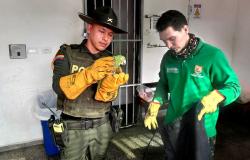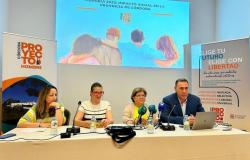In the context of the commemoration of the centenary of the death of Franz Kafka, the famous Czech writer, it is good to unravel some of the hidden logic behind the apparent unreason that characterizes life in La Guajira, the arid land forgotten by mortals and all the gods
Forgotten in a desolate landscape, where the traces of time and negligence intertwine to create a Kafkaesque nightmare for its inhabitants. And by turning to the man whose last name became absurd, it is necessary to settle into postmodernity to find in the Caribbean peninsula the perfect synonym of the Kafkaesque, of an absurd reality made territory and at risk of being “adjectived.”
Like Joseph K. in The Process, the Wayuú have been trapped in an endless bureaucratic labyrinth, where hope fades at every step. Their land title applications have been stalled for decades, leaving them vulnerable to evictions and the loss of their ancestral lands. And like The Castle in Kafka’s novel, the government seems distant and unreachable. Officials hide behind a wall of incomprehensible regulations, ignoring pleas for help and justice.
Promises are made and broken, leaving the Wayuú in a perpetual state of uncertainty. Malnutrition, poverty and disease lurk around every corner.
Clinics are undersupplied and access to drinking water is limited. Children suffer from preventable diseases, while mothers struggle to feed their families. Like Kafka’s characters, the Wayuú are trapped in an oppressive system that alienates them and strips them of their humanity. Their fight for survival becomes a battle against abstract forces that seem to control their destiny.
As the writer Weildler Guerra Curvelo expresses it well in his most recent column in the newspaper El Español, we can say that Kafka and La Guajira have a “transnational and transcultural” character and represent “cultural and linguistic diversity.” Likewise, and based on the anthropologist’s assessments, one observes with amazement, not only a Kafka-Gabo relationship, but an “ontological connection” between Kafka and La Guajira that “transgresses the limit between the real and the unreal.” Connection manifest in the geographical, cultural and spiritual singularities of the peninsula and that is part of the “identity elements” of Guajiridad.
La Guajira suffers from a drinking water crisis that has become chronic. How is it possible that in the 21st century, in a country that boasts of its natural wealth, such a paradox exists? But the absurdity doesn’t stop there. La Guajira is also one of the richest regions in mineral and energy resources: coal, natural gas, salt, gypsum. However, these underground treasures have not translated into a better standard of living for its inhabitants. On the contrary, poverty, malnutrition and lack of opportunities remain the norm. How can we explain that a land so blessed by nature has become a wasteland of misery and oblivion?
And if we thought that nothing could be more absurd, we find ourselves with the intricate bureaucratic tangle that surrounds any attempt to improve the situation. Infrastructure projects, social programs, development initiatives lost in a labyrinth of procedures, permits, studies and approvals that seem to travel through endless sand storms.
It is as if public administration itself has become an insurmountable obstacle to the progress of this region. La Guajira has been transformed into a microcosm of a Kafkaesque nightmare, where bureaucracy, negligence and desperation intertwine creating existential torment. The Wayuú have become the K. of their own history, condemned to wander through a labyrinth with no exit, pursued by anxiety and hopelessness.
These are just some of the paradoxes that make up the “Kafkaesque Guajira.” But beyond the complaint, spaces for reflection and search for solutions must be proposed. Because if Kafka’s work teaches us anything, it is that even in the midst of absurdity, there is always a spark of humanity that can ignite hope. Join this journey through the twists and turns of the Guajira reality, so that together we can find “The Metamorphosis” towards the social justice and development that this region so deserves.






